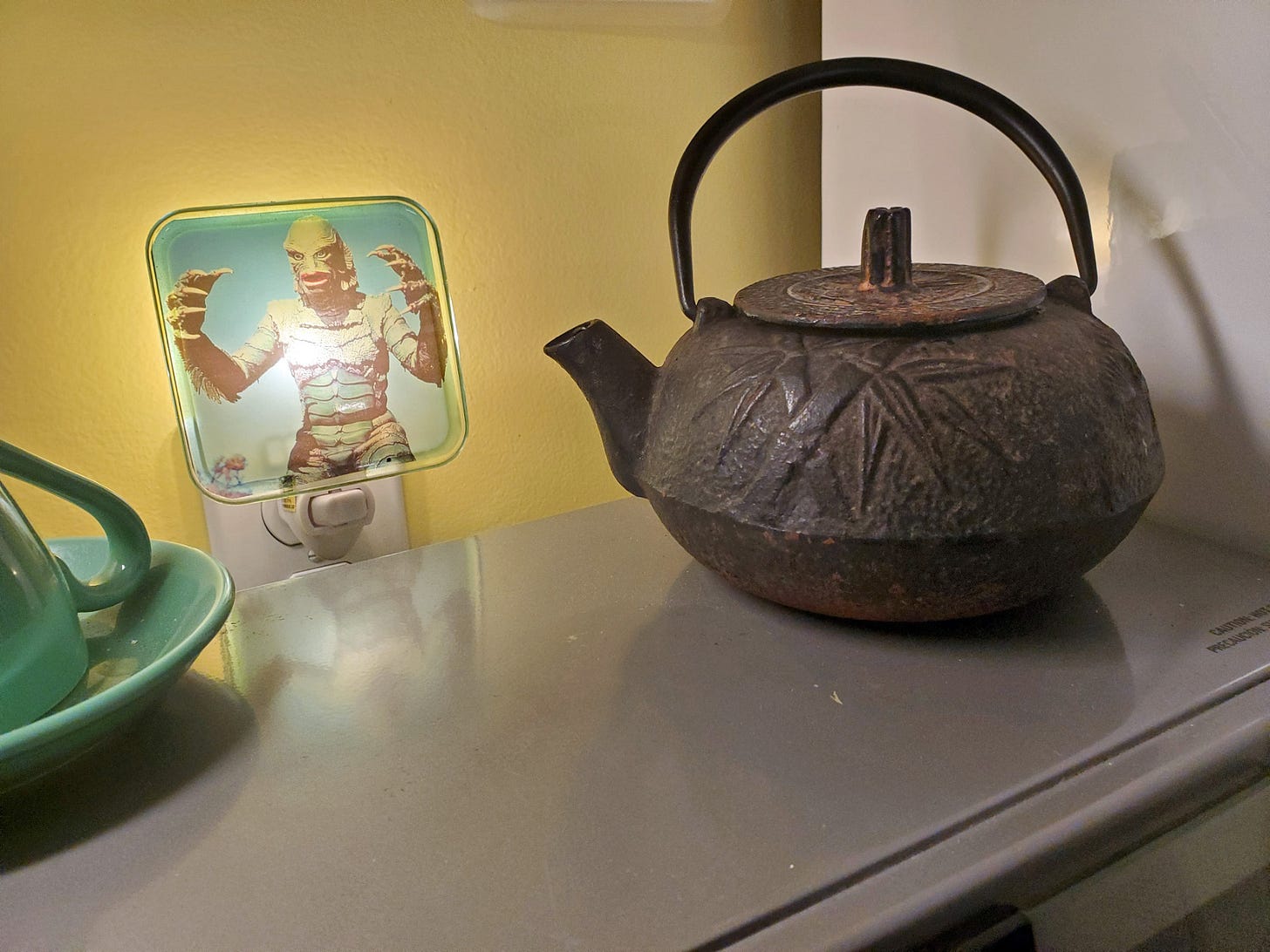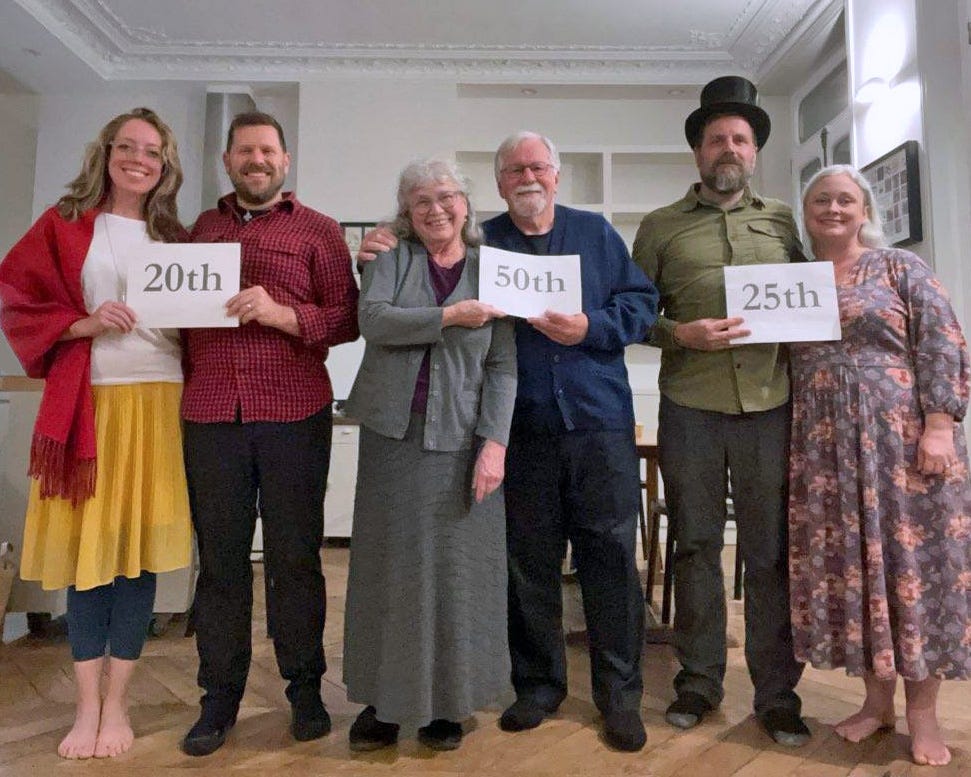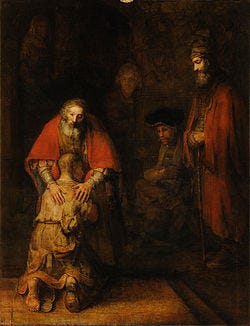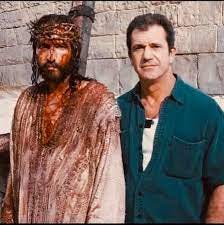Can God forgive us for free--with no payment for our sins?
It's a little teapot; Your sin-debt is forgiven, not third-party paid
Old Ironsides
I started last week’s Substack with coffee, so I’ll start this one with tea.
About a year ago my husband and I were talking with our sons about 2024 being our big 50th anniversary year, and said we were planning to go to Paris.
Son (Subdeacon) David said, “It’s our 25th anniversary” and son (Father) Stephen said, “And it’s our 20th.” We had never realized we were all syncing together like that. My husband said, “We’re all going to Paris!”
So the six of us made the trip this past October. It was wonderful.
Well, I told you all that to tell you about this teapot.
We were in Chartres on a blustery day, and when we sat down at a restaurant I asked for a pot of hot tea. To my surprise, the waiter brought it in a little iron pot, like this one. And the tea stayed hot through the whole meal! I was impressed.
When I got home, I poked around online and learned that it is a kind of Japanese teapot called a tetsubin. I ordered a nice new pretty one, but then I saw this well-loved vintage one online and was captivated. I gave away the pretty one and use this with great affection.
First, you boil water in it—it holds about 16 ounces, but the spout is so low that boiling water comes sputtering out, so you’ll want to put in less than that. Once it’s boiling, I take it off the burner and drop in two teabags. I’m not one for herbal or fruity teas; give me just any kind of black tea. But you have to time black tea, because if it goes too long it becomes awfully bitter. So I stir the teabags into the pot and leave them for 5 minutes, then take them out carefully (no squeezing! bitter!). Then, because I’m a self-indulgent old lady, I add two teaspoons of sugar.
The pot sits on my desk on a little pot holder, and two hours later it is still too hot to hold in my hand. Is this the teapot you need?
Can God forgive us for free—with no payment for our sins?
A few weeks ago I was invited to speak at an evangelical church, on the topic of the Atonement. If you don’t know the term, it refers to the theological explanation of how Jesus’ death on the Cross saves us. It’s a how-does-it-work question. We Orthodox have our way of understanding it, which goes back to the early centuries. In Western Christianity there are a number of different theories, though, because of a new idea that appeared right about a thousand years ago, soon after the East-West split.
The pastor told me that he had invited representatives of the various Western views to speak on a series of Sundays, and wanted me to come tell the congregation about Orthodox beliefs. He thought that it was right to use all of the beliefs about the Atonement.
I wasn’t sure about that, because in the West there’s a fundamental belief that Jesus paid the debt for our sins to the Father, which is incompatible with the Orthodox idea (and I would say, the biblical idea) that the Father forgives our sins for free.
That Sunday morning I found a very friendly congregation, ready to learn. I planned to base my talk on my most recent book, Two Views of the Cross. The cover shows a Dutch painting of the Crucifixion from the early 1600s, and a Greek icon that was made about the same time. If you compare them, you can see there’s a great difference in how the Crucifixion was understood.
In the Dutch painting, Christ really looks like a corpse, crushed, defeated, sagging down, with greenish-gray skin. Blood flows freely from all his wounds. But the icon is different. There, Christ looks like he is standing with his arms lifted, almost as if he is displaying the Cross to us. The Cross is Christ’s throne. It is an emblem of victory.
In the book I make three points, for those who want to understand the Orthodox view of the Atonement. First, that we inherit a weakness in the face of sin that’s a basic part of broken human nature, passed down the generations from the Fall of Adam and Eve. Giving in to sin weakens us further, and we get helplessly pushed around by the lies of the evil one. “The wages of sin is death” (Romans 6:23), and all people, even the righteous, passed from this life to become helpless prisoners of Death. The Cross is the culmination of a plan in which Jesus put on human form, and submitted to death—but there in Hades he revealed his divinity, and broke its iron bars. That’s why Jesus looks triumphant on the Cross: He has vanquished the evil one, he has come to rescue us.
There’s another piece, though. What about the debt for all those sins we have committed? The Orthodox believe that God just forgives us. He wipes away that debt, because he loves us, like the father of the Prodigal Son running toward his returning boy.
And, third, what about Jesus’ death being a sacrifice to the Father? A sacrifice is not a payment. A sacrifice is a gift given to formalize a covenant. When two kings met to agree to a treaty, each would bring costly gifts for the other, as an evidence of their commitment. (The only thing we have like that today is an engagement ring.)
But, properly speaking, a sacrifice was always something edible, and a new covenant is sealed by eating a meal together. Christ said that the cup, at the Last Supper, was “the new covenant in my blood” (Luke 22:20). Jesus is the sacrifice we make to the Father—and Jesus is also the gift from the Father to us, because he “so loved the world that he gave his only-begotten Son” (John 3:16).
My book, Two Views of the Cross, is pretty short, but it still contains too much to explain in a 20-minute talk. I gave the most emphasis to that middle part, about God’s free forgiveness, because that’s where the most misunderstanding lies.
Orthodox Christians believe that the Father forgives us for free. He does not require any payment before he forgives us. He is not bound by justice, so that he can’t forgive us till the debt is paid. He forgives us for free.
The clearest example is that father, in Jesus’ parable of the Prodigal Son (Luke 15:11-32). The son has treated his father with extreme disrespect. He demanded to be given his inheritance early, as if saying to his father “You are dead to me.” Then he went far away—not just a few miles off to sulk, but to a “far country,” putting as much distance between himself and his father as he could.
You already know what happened next. The son wasted all his money, “came to himself,” and decided to go home, apologize, and ask to be taken in as a servant.
But Jesus tells us that the father sees his son “while he was yet a long way off.” That means his father must have been looking for him. He had been searching the horizon, gazing into the distance, hoping to see that wayward son return.
So picture this. When the son came into view, the father waited for him to make his weary way back. The son then showed his deep repentance, but the father said, “I’d love to take you back, son, but look at this Visa bill! Who’s going to pay that? You’ve got to repay every penny before I can forgive you.”
Well, that’s obviously not what the father said. Jesus tells us that, from the moment the father saw his son, he was stirred with deep compassion He ran to his son and embraced him and kissed him. He didn’t say anything about repaying the debt. He simply forgave him, just like that.
Western Christians can have trouble grasping how that works. I know I did, when I was a new convert, 30-something years ago. The sins of the world are an enormous debt, and surely somebody has to pay it. It can’t just go unpaid. But what we see in Jesus’ parable is that a father does exactly that; he forgives his son without repayment.
That’s what “forgiveness” actually means, isn’t it? Jesus has another parable about a man who had loaned money to two people; “one owed 500 denarii, and the other 50. When they could not repay, he graciously forgave them both” (Luke 7:41-42). The man simply dismissed the debt; someone else didn’t step in and pay it.
Here’s an analogy that I hope helps clarify things. Say you’re finishing up a restaurant meal, and you ask for the bill. The waiter says, “No charge—the manager has forgiven your debt.”
Or he might say, “No charge—the man at that table paid your debt.”
The first is forgiveness. The second is third-party payment. God did the first; he actually forgave us.
But Western Christianity has lost the early, Orthodox view, and come to see the Cross as third-party payment.
How did that happen? A new idea came into Western theology around the time of the Great Schism, which separated the Eastern and Western Churches. The usually date pinned on that is AD 1054, though it took place gradually, over a long period of time. 1054 is just a handy peg to hang your hat.
The new idea came from a French monk named Anselm, who was the Archbishop of Canterbury.
He lived in the feudal era, when a great lord ruled over his manor, and multitudes of serfs farmed his land and did his bidding. This lord was accorded great honor, and the serfs had to treat him with respect.
If a serf somehow insulted the lord, it didn’t matter if he said he was sorry; the lord was not free to simply forgive him. The serf would have to do something to restore the lord’s injured honor. He would have to render some kind of restitution, or to use the old word, satisfaction, before he could be forgiven.
St. Anselm reasoned that God’s honor must be higher than that of any human being. And all the sins of humanity were grievous insults to that honor. If God was going to forgive us, satisfaction had first to be made.
Anselm said that, when Jesus died on the Cross, he gave the Father a gift of infinite value. Now the Father is indebted to the Son, and owes him a great reward. If Jesus decided to give that reward to us, how could the Father stop him? “One who freely gives so great a gift to God must not be without a reward,” Anselm wrote. “If the Son willed to give his reward to others, could the Father justly prohibit it, or refuse to bestow it on them?”
You can see what’s appealing about that idea. If God forgives us for free, as in the Orthodox understanding, his love is so overwhelming, so irrational (in human terms), that it’s scary. It’s a good bit more comfortable to think that a third party, Jesus, paid the debt we owe to God. That’s a satisfying kind of idea—a “satisfaction” theory of the atonement in another sense.
Over time, this view was elaborated by different thinkers. In Anselm’s theory, Jesus paid our debt, so no punishment for our sins was necessary. But later thinkers said that Jesus took our punishment in his agony on the Cross. There was a punishment, but Jesus took it for us. Still others said he bore the wrath of the Father. Our sins fill God with rage, and it could not be spent until he saw his Son’s suffering and death. Western Christian art depicted Jesus as utterly abject, powerless, crushed. I saw this line attributed to Mel Gibson once, but haven’t been able to trace it: “Every drop of blood pays for a sin.”
How very unlike the father of the Prodigal son that is. He watched for his son, ran to him, embraced him, and rejoiced. He had every reason to demand satisfaction, and even deal out punishment. But, instead, the father of the Prodigal forgave.
Apparently, in Jesus’ time it was conceivable that someone might hold high honor and yet forgive an injury without repayment. And it’s conceivable in our time as well: though the pope hold the highest honor in Western Christianity, when Pope John Paul II was shot, he went to the prison and forgave his assailant. He forgave him freely, without any satisfaction.
The Cross is a gift, an emblem of victory, a perfect offering—the Cross is many things. But it is not a transaction.
I said earlier that there are two other ideas I’d bring in, to fill out the picture of Orthodox Atonement theory a little further. This next one illustrates biblical words like ransom, rescue, redeem, and save.
Seeing humans lost in a sea of transgressions, God came to our rescue. The Fall of Adam and Eve broke something in human nature, so that we are weak before temptation and keep falling into sin. Participating in sin weakens us further, in a vicious cycle. We were lost in this confusion, and could never escape it by our own powers. We needed to be rescued.
Jesus and the Father are on the same team. They worked together to rescue us from the grip of the evil one, and freed us from the prison of Death. Jesus became human so he could pass into the realm of Death, just like every other human being. But once there he revealed his glory and destroyed its prison bars, setting the captives free.
And there’s that third piece I referred to earlier, that Jesus is Paschal Sacrifice, offered by us to the Father, and given to us by the Father, establishing the new covenant in Jesus’ blood.
We don’t have time to go deeper into that, but I hope this discussion of God’s free forgiveness can help Western and Eastern Christians understand each other better. The congregation that day sure seemed intrigued. (And if you want to get the whole picture, with all the Scripture citations, look for Two Views of the Cross on Amazon or wherever fine books are sold.)











Hi Frederica, I’ve thoroughly enjoyed your articles. What a lovely family you have — by God’s grace, I pray that one day I may also have a family dedicated to serving God and His Church.
This may be contrarian, but something I’ve been contemplating recently (and would appreciate your thoughts on) is the extent to which Orthodox theology does see atonement as substitutionary as well. I actually saw a video recently on YouTube of a former Orthodox priest who converted to Lutheranism after reading the fathers and concluding that they did actually believe in a form of substitutionary atonement. I frankly thought it was silly; he acted like he was uncovering some conspiracy, but obviously Orthodox soteriology, while it rejects the legalistic heritage of Anselm, does not reject that we were reconciled to God through the death of His Son. And it doesn’t reject that “having now been justified by His blood, we shall be saved from the wrath of God through Him” (Romans 5:9).
For context, I’m a newly baptized Orthodox Christian! I spent most of my life as an atheist, then my early 20s as a Protestant, and only recently I have been baptized as an Orthodox Christian this past Pascha, the pinnacle and fulfillment of my pursuit of truth. And yet I continue on seeking, so I’d appreciate if you could offer more insight on the nuances here.
While I’ve been thinking about the Orthodox view on the atonement, I’ve also been revisiting St. Athanasius’ On The Incarnation. In its light I was thinking about your analogy of the manager of the restaurant, and I find myself disagreeing (or at least, preferring to see things from a different lens). My thinking is that it is only because the manager can bear the consequences of not being paid that the situation becomes “satisfied.” Of course it’s just an analogy and He who is eternal Life and perfect Light canbear forgiving any debt, unlike human managers.
Even so, I sense it’s still important to recognize that there is a redemption of a real consequence in forgiveness, an untangling of sin. My reason for this is something I’ve taken from my interpretation of St. Athanasius; notably, that the consequences of sin are due to our twisting of God’s orderly creation, and for God to magically untwist this order would be wrong, as it would betray the goodness of creation.
This idea is best encompassed to me by St. Athanasius’ summary of the gospel in On the Incarnation here:
The human race was in process of destruction. Man, who was created in God's image and in his possession of reason reflected the very Word Himself, was disappearing, and the work of God was being undone. The law of death, which followed from the Transgression, prevailed upon us, and from it there was no escape. The thing that was happening was in truth both monstrous and unfitting. It would, of course, have been unthinkable that God should go back upon His word and that man, having transgressed, should not die; but it was equally monstrous that beings which once had shared the nature of the Word should perish and turn back again into non-existence through corruption.
This aspect of Athanasius’ teaching I highlighted in bold I find interesting. To me it must be saying that God’s rule which He established, and the natural consequences of the original Transgression are good, or more precisely that it would be unjust for God to resolve those consequences through a simple act of immediate forgiveness.
… of the tree of the knowledge of good and evil you shall not eat, for in the day that you eat of it you shall surely die.
Instead, it seems, it was good to God to maintain the order he set from the beginning, where man was destined for death if he transgressed. Then we needed the active operations of God in the incarnation to do healing works of condescension and sacrifice which lead to something quite like satisfaction of the wrath of God. The wrath of God being the fulfillment of that original consequence: “you shall surely die."
As an aside, why when reading the fathers do they always say “of course,” or “obviously,” to the things I find so extremely non-obvious and yet so important!
St. Athanasius goes on:
He could not falsify Himself; what, then, was God to do? Was He to demand repentance from men for their transgression? You might say that that was worthy of God, and argue further that, as through the Transgression they became subject to corruption, so through repentance they might return to incorruption again. But repentance would not guard the Divine consistency, for, if death did not hold dominion over men, God would still remain untrue. Nor does repentance recall men from what is according to their nature; all that it does is to make them cease from sinning. Had it been a case of a trespass only, and not of a subsequent corruption, repentance would have been well enough; but when once transgression had begun men came under the power of the corruption proper to their nature and were bereft of the grace which belonged to them as creatures in the Image of God. No, repentance could not meet the case. What—or rather Who was it that was needed for such grace and such recall as we required? Who, save the Word of God Himself, Who also in the beginning had made all things out of nothing? His part it was, and His alone, both to bring again the corruptible to incorruption and to maintain for the Father His consistency of character with all. For He alone, being Word of the Father and above all, was in consequence both able to recreate all, and worthy to suffer on behalf of all and to be an ambassador for all with the Father.
This all seems to make the matter delicate. It is true that God freely forgives us. But at the same time, he does so in a way that respects the order of His creation, and so He does not “falsify Himself” but satisfies His wrath through giving His his one and only Son, that whosoever believes in him shall not perish but have eternal life.
This starts to sound so very Anselm and Protestant. But I think it’s Orthodox.
To be sure the Father and the Son are one in this mission. The wrath of God being satisfied by the blood of His Son is true, but it’s not that without Jesus, God would look at us with rage and not love.
In this is love, not that we loved God, but that He loved us and sent His Son to be the propitiation for our sins.
1 John 4:10
God always saw that the human race was in the process of destruction due to a loss of communion initiated by the original Transgression, and He was always seeking to reveal Himself to us, to forgive our trespasses, and He patiently waited for us to respond to His invitations:
O Jerusalem, Jerusalem, the one who kills the prophets and stones those who are sent to her! How often I wanted to gather your children together, as a hen gathers her chicks under her wings, but you were not willing!
Matthew 23:37
And then one day a holy, spotless, stainless virgin said “Let it be to me according to your word!” Thank God for our most pure and holy Theotokos.
What interests me about this way to describe the gospel is that there are ways we can highlight areas of agreement with Anselm, while keeping true to Orthodox theology. I admit some of what drives me here may be an ecumenical impulse; that Orthodox priest may not have left the true faith if he recognized that this isn’t so black and white. And I also do want to reconcile Western ideas the best we can, even my own history of converting first to Protestantism, without compromising on the truth of Orthodoxy.
If you believe me to be led astray in any of these things, please let me know. I’m still new to the Church and am always seeking a better understanding of the truth.
Love in Christ,
Jamie
Quotes are from On the Incarnation, Chapter 2: https://www.ccel.org/ccel/athanasius/incarnation.iii.html
Unconditional love consumes any notion of forgiveness. God’s forgiveness is His unconditional love. To him who truly loves, he knows no concept of forgiveness - only love.
Once this is seen, it can also be understood from the same story of the Prodigal Son that union with the Father is an inherent given - communion, on the other hand, is the Prodigal Son’s free choice. Theosis is the process of actualizing man’s inherent union and potential for divinity and the very purpose of one’s life.